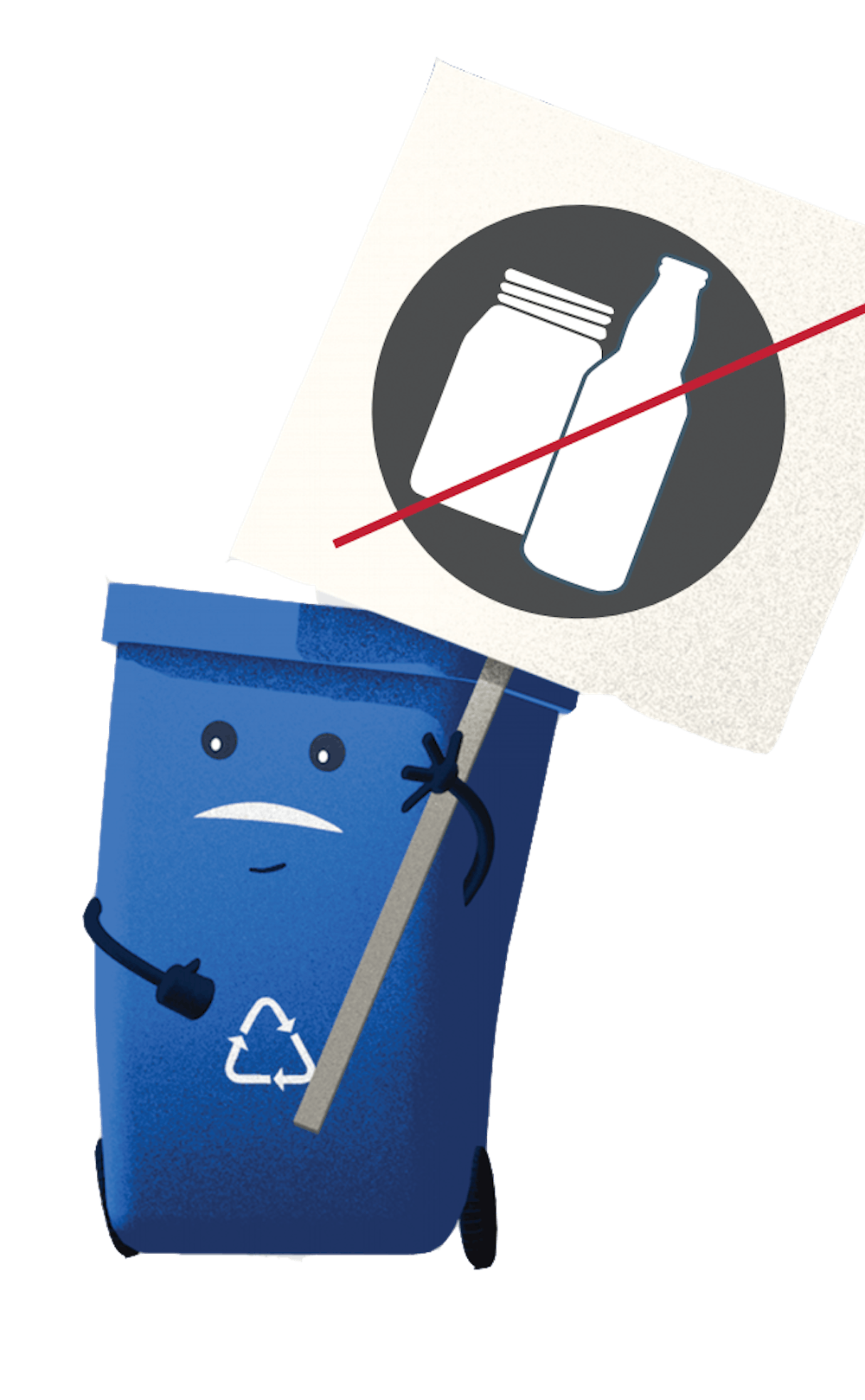To fight problems in the community’s recycling system, the City of Auburn is putting feet on the street to monitor recycling contamination.
The Feet on the Street campaign is a month-long campaign during which the City will examine residents’ recycling cans for contaminants, said Environmental Services Director Catrina Cook.
The program is a part of an effort to increase recycling and decrease contamination in the recycling system.
“The Feet on the Street campaign helps us with our education and outreach,” Cook said. “It’s just making sure everyone is [recycling] the right way.”
This program is one part of Auburn’s recent efforts to improve recycling.
Plastic bags and glass are common contaminants found in Auburn recycling cans, Cook said. The single-stream facility in Columbus, Georgia, that Auburn uses cannot handle them.
However, glass, plastic bags and other recyclables are accepted at Auburn’s recycling center, where items have to be dropped off to be recycled.
The Feet on the Street campaign acts as an auditing system to make sure homeowners understand what can be recycled through the City’s single-stream service and why, Cook said.
The workers inspecting residents’ bins will leave tags that read “Oops” on contaminated cans to let homeowners know what they need to remove. Homes without a bin will receive recycling information on their garbage cans.
Cook said looking into recycling cans is not unusual. Other cities worldwide look for contaminants in street-side bins, she said.
Contaminated cans will then be turned around, and the recycling trucks will not empty them, Cook said. The homeowners will have to remove the contamination to avoid contaminating the whole recycling truck’s load with non-recyclables.
“[The tags] serve a dual purpose,” Cook said. “One is contaminants, and the other is taking notice of those who don’t have a [recycling] cart curbside.”
Out of about 16,700 households receiving garbage collection from the City, 13,500 recycle, Cook said. In the first week of the Feet on the Street campaign, about 400 of the cans checked had some sort of contamination.
Feet on the Street is funded in part by a $175,000 grant from The Recycling Partnership Auburn received in 2019 to increase recycling and educate the public on recycling.
The Recycling Partnership works with both municipalities and corporations to provide recycling solutions, said Alita Kane, community program coordinator with The Recycling Partnership.
“[Auburn’s campaign] is the first time we’ve been able to work with a community to get this campaign launched so quickly,” Kane said. “This Feet on the Street program is something we’ve been doing in communities across the nation [such as] Atlanta, Georgia.”
Four employees were hired to perform the can inspections, Kane said. They previously worked on a similar project in Atlanta.
Kane pointed out that cans left curbside for collection are legally property of the City. Still, employees do not dig through the cart’s contents, but only open the lid and look in.
Through this program and education efforts, Auburn is projected for a 25% reduction in contamination levels, which will be measured by the number of “oops” tags placed on recycling cans, Kane said.
“The Feet on the Street program is the Cadillac of recycling programs out there,” Kane said.
The program is one of the most intensive programs a City can implement, Kane noted.
“It is the most hands-on. It takes a serious commitment from a community to do this work, so we’re really proud of the City of Auburn for stepping up to the plate,” Kane said.
In the past, the City had a solid waste enforcement officer who would look into recycling cans, but the Feet on the Street campaign allows for more City coverage, Cook said.
Auburn also created an app that informs residents of where items can be disposed, whether in blue curbside bins, at the recycling center or thrown in a trash can.
Do you like this story? The Plainsman doesn't accept money from tuition or student fees, and we don't charge a subscription fee. But you can donate to support The Plainsman.





